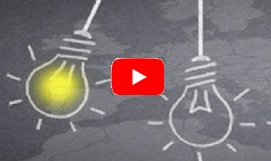Meetings between homeschoolers & government
So, got a chance to chat more with Timothy Ndzuzo than Penny Vinjevold of the Western Cape Education Department. I have transcribed the full conversation below, but in essence there is a great deal of movement afoot. We all await the new cabinet and ministers nationally and provincially. Despite that uncertainty, what is certain is that the South African Schools Act and the National Policy on the Registration for Home Education are going to undergo changes. The policy is likely to drive the changes to the law. Timothy was also very keen to urge home educators to come together to get a national and provincial voice so as to be part of the conversations required to facilitate redrafting of the policy and the legislation.
Telephonic conversation with Penny Vinjvold (P) and Timothy Ndzuzo (J) and Joy Leavesley (J)
Monday 19th May 2014 1:30pm
P: I’ve got our expert on homeschooling with me, and while I sit in, and he really is the person who has been dealing with a lot of people concerned with home schooling. I really would rather he spoke to you, I hope that is OK?
J: Yes that’s fine, sorry, what’s his name?
P: His name is Mr Ndzuzo
J: Penny before you shoot off can I ask you where we are standing at the moment with the way forward with the policy, and the law and regulation and all that.
P: Exactly in the same position as when I wrote to you
J: OK so you are sitting on a draft policy for the Western Cape
P: No we are not sitting on a draft policy. There is a national process that is starting to happen
J: OK. When is the national policy going to be reviewed?
P: I have no idea but I am sure that once the new cabinet has been announced and the new minister of education has been announced then it is one of things that he or she will take up in time.
J: OK so alright, the current situation in the Western Cape is that you are asking parents to please follow the procedure that is laid out in your website, that they are got a form they just need to fill in and submit through to your offices. Is that right?
P: Let me put you onto Mr Ndzuzo who can confirm all of that.
J: Timothy what I really want to know is just what are you encouraging parents who are home schooling their children to do because it seems as though we are between times as Penny said you are awaiting a new minister and a new cabinet and obviously that person needs to drive the process in terms of the national policy but you in the Western Cape are pretty free to do your own thing really.
T: No. The draft you are referring to was withdrawn given the fact that national is now busy. In fact, there is a task team which has meet about two times up until now and there is another meeting in July at national. Perhaps I can just inform you that earlier in the month we had a meeting with CHE it group that had concerns about home education and we had quite a fruitful meeting, We alerted them to the national process but also alerted them to the need to have some kind of a unified voice for home education in the Western cape groups come together so that from time to time we can have an engagement with the Western Cape Education Department.
J: Absolutely I understand the need for that, but also I think what is important to understand is the right to education vests in every child individually because of that it means that then it is not possible for groups to represent every child. Every child has a right to education in their own self. It is not a collective right that is a blanket one size fit all for everyone. Which makes the complication of honouring the individual child being free to pursue their individual rights as they would like, at the same time understanding that that makes it then very difficult to change anything nationally because then you have 100 000 children coming one by one. This makes life difficult. I am saying that because it is important to realise that that is really the essence of the difficulty of having groups representing individuals. I agree with you that it is useful that we should have some platforms and groups and some way that we can connect with each other and participate as required. I agree with that and absolutely see the need for that.
T: From our side as a state department the big interest is for us to be in line with the Constitution and the South African Schools Act. That requires every child up to the age of 15 to be at school. The Schools Act also allows for the establishment of home schooling as well as independent schools. But overall, constitutionally, the WCED, is still the custodian of education despite the fact then you would have the right to home educate your child but as long as the department knows that this is what is happening with the child at a given point until the age of 15 or Grade 9, whichever comes first. I think those basic ground rules have to be established before we then say each home does as it wants to do in relation to the education of the child, in that given home. In other words parents will choose the kind of curriculum the parents wish the child should follow at home and that is the prerogative of the parent – that is not disputed at all. We do have some parents who take the view that takes it a bit further and say it is our right to educate our child and there is no need for registration. Once parents hold this view then it becomes difficult for the education department if they can’t say this is the number of children receiving home education in the province. And it means the monitoring function is not being fulfilled and they are getting roasted by the oversight committees and the portfolio committees.
J: That is the heart of the debate for me, what is the role of a parent and what is the role of the state and where do we draw that line? In my email to Penny I put forward an example. I understand in the Western Cape there are two executive departments, one is education and one is health. The executive nature of the department means that really you operate under quite a lot of independence from national you can change things that are more in line with what is happening the WC. You have more autonomy and more power. I raise that because then in my email to Penny I said to her how is education different? Because when you look at health and how the authorities regulate the health of children in the Western Cape. They don’t set up policy that says this is how much the child should be eating, this is how many times the child must visit the doctor the is how much the child should grow every year. And even those things they do have in place it is voluntary. For example, immunisation. We need to protect our children from diseases they can pick up and die from. That is even more urgent than education, because if you are dead education becomes irrelevant. Even worse than that, if a child does not get immunised and they pick up, say, measles. Perhaps, though they themselves don’t die, they transmit the disease, but they effectively kill another child by passing that disease on because they were not immunised. Even in the law of immunisation it is voluntary. There is no law that can allow someone from the health department to come and immunise my child against our wishes. It is not possible. It is an assault. So then I look at that and I come back to education I think there is so much regulation and so much interference so much telling what to do. How come? It is a question I have for you.
T: For me it is about the constitution. I take your example of health if we have a bill of rights that every child has a right to good health and a right to treatment and so on it is not an imposition it is a particular person availing a right, whether you enjoy that or not then becomes a choice. I can choose to be educated or not to be educated but the right is available. The state has to guarantee that right when it comes to education it says you must be at school between ages say Grade R to Grade 9.
J: But that does not say that in the Constitution. That comes from the Schools Act.
T: It is from the Schools Act. The Schools Act comes from the constitution. It derives from the constitution how to implement that right. At public or independent or home school is where the education can take place. But the state at any point, the child between 5 to 15 are at school. That is an obligation on the part of the state at any of these three sites. We have to be sure that children receive education.
J: I understand that, but that does not originate in the constitution. That is an interpretation of the constitution that has been enacted. It does not actually say that in the constitution. Do you have the exact wording of the constitution?
T: Yes, everyone has a right to education, including adult basic education.
J: The constitution does not even mention school even age, other than it is inclusive of a lifelong learning idea. It does not say education must start at 5 must end at 75 it just says everyone has a right to education, it does not give any parameters for that. The people who were then involved in drafting the Schools Act the interpreted and put their own view on what that would mean for South African children. So my issue is that i don’t think the schools act does not honour the constitution. because it puts discriminatory regulation onto that. It discriminates against home educated people because, for example, friends of mine who want to send their children to a private school don’t have to write to the Head of Department and say to him or her I have decided to send my child to this private school these are my reasons for doing so please can you approve my application to that school.
T: It happens at another level. It is the institution itself that has to apply to operate. You don’t register the home as a school, you simply apply for the child to receive education at home. If you go to a independent institution then the operate thereof must apply to the department for approval of such an institution. Because he or she will be dealing with more children. The HoD must give permission for the establishment of such an institution. At an individual level the parent does not register the home but applies for each child. . Basically the same principle that applies. Save for the fact that home education level it is just a learner who is given permission to school the child at home.
J: Do you agree with me or not Timothy that there is a big difference.
T: The meeting with the CHE was discussed at length. The same people who held the same view then we finished the meeting it felt everyone understood everyone and felt the need to continue discussions and clarify this particular matter. There is a perception that the department of education is kind of interfering in home education. All that is happening is for the department to be able to account for the number of learners in the province and whether they are receiving education in either public, independent and home. At any given point the department needs to know that.
J: So for you then is it more the number than the where and why and all the questions that follow.
T: It is an accountability issue. Once a parent has applied for home education the letter then says that the education of the child becomes the parent’s responsibility and so the state will not be held liable for the progress the child is making or not making. So that shifts to the parent, that particular responsibility.
J But don’t you feel that the parents have that particular responsibility anyway. It is more that when we sign up our children, either at a private or public school there is at that point a transferring of responsibility, quite an enormous one. I understand then, that the difficulty there is that then parents and difficulty committee members can then ask how and why certain things are happening with their children. But before that it is already without having to be approved or regulated it is already their responsibility. So then the accountability falls onto the schools to explain how they are meeting a child’s right to an education. Before that it is already without having to be approved or regulated it is the parents responsibility. For example, I taught my children to talk and walk. I did not have to apply to someone to ask is it OK if I can teach my child to dress themselves. We just got on with it, that is what we do. And it is the same with education, when are not you educating when are you not learning? You are learning all the time, so it is difficult for me to then start to think how to educate my children when I can’t see how not to educate them. There is no vacuum., So for me it is a very important thing that needs to change in the Schools Act. First primary responsibility and accountability rests with the parent because then the government or department can then say you did not assume that responsibility for your child.
T: But it does say that in the Schools Act that if a child of school going age does not attend school then the parent could be arrested and fined. That is why at any given point we need to know who is receiving an education.
J: So then Timothy is it your view then that we have a register. There is two ways, there is just an automatic right and responsibility and accountability to the parent to provide for their child all their rights health, shelter, education etc etc and that falls under the constitution and that does not be regulated. That is one option we do nothing and write out home education out of everything. The other possibility is to say the government is uncomfortable with that. I can be persuaded because of our history. So in England, for example, that is the case, they have decided that the parent assumes all responsibility for their child. That is the law. That is fine in a country where the history is very different to ours. Because in our history people had to struggle for education. Even now you can look around and you can see there are lots and lots children that are well below were we would like them to be as a nation. And so I can understand and I can be persuaded that because of the struggle to get all children a proper education that maybe if we have a law like in England when we don’t do anything and we just leave 100% responsibility to the parents. I could be persuaded that the government have a central record somewhere whereby they can account for every child and all it is next to the child will be the name of a school or home education and then at least those children that are not getting anything from anybody can maybe be picked up by the authorities. I can be persuaded for that.
T: It is basically our constitutional order. If it has to change then it is not the WCED that will be involved and then it is parliament that has to do that. If the SA schools act has to change there is a process underway for the review of the SA schools act to do so.
J: Who is involved in that review?
T: National education dept that leads that process they will submit any proposed changes to parliament.
J: Surely the provinces are involved.
T: Yes. The WEDC is being represented by Adv. Coleridge in that process. There will be a public participation process after some time then there will be presenting of a draft amendment and then the public will have the opportunity to make comments.
J: Is the review aimed at changes for home education?
T: Correct. That is part of the process. That process will feed into the legalisation review.
J: Is that because people within the departments around South Africa have anxiety about how to implement the act? What has driven the review?
T: It is especially because of the number of views the national department gets inundated with. Therefore have to look at what the public is saying. I will let you know when we have further discussions with CHE.
J: I am actually in contact with them. Though I am currently phoning only in my own capacity. I am not sure if Penny told you I am recording this conversation. I just wanted to check.
T: Yes
J: Great thanks. It is just useful to have records. Timothy I also just want to ask is reviewing the national policy then not jumping the gun if the schools act is going to change? And you are hoping changes will be around home education.
T: Not necessarily obviously you need to look at what you want to put in the law rather than the law telling you what to put in there so the processes are running concurrently.
J: When do you expect the act and policy will be ready for public consultation?
T: It depends on what machinery is put into place by the new government provincially and nationally. We can’t give a time to that.
J: In the WCED are you expecting many changes within your own department.
T: I don’t think so.
J: Thank you because as much as it is hard for you to find all the home educating families in South Africa , It is just as hard for us to find everyone in the departments.
T: I will keep contact with you so at least you know one person.
J: Timothy if you need someone to come with you to those portfolio committees I am more than happy to come with you and say to them please very respectfully please back away from the children. Anyway that is excellent thanks Timothy. I am going to then leave you in the very capable hands of the Western Cape Home Educators Committee because they will notify me of any meeting they have with you and we will try to engage with national who seem now to be driving the process. Timothy I then do need to ask in the meantime, obviously there is lots of uncertainly and potential changes coming to us. What should the parents do,
T: I think, as I said at the beginning, it is important that the sector organises itself so that you can have a voice with whatever is happening within home education whether that is nationally or provisionally so we all at time articulate what it is the majority of parents would like to see happening.
J: That’s excellent. Thank you Timothy and you don’t have any questions for me?
T: Not at this stage.
Click here to read the interview on the blog of Joy Leavesley.
Legal & Research
Homeschooling and the law
Home schooling was recognized in 1996 in Section 51 of the SA Schools
+ ViewCentres
Homeschool ABC
Support
Curriculums
GED through Learnalot - Grade 12 ...
Why enrol with Learnalot? With Learnalot, you have the flexibility ...
Elroi Academy (Gr 8 - 12)
Elroi Academy – Top-Rated Distance Education Provider in South ...
Teneo Online School
Online High School, Primary School and Pre-Primary School offering ...
Impaq: Homeschool & Online ...
Impaq: The leading homeschooling curriculum provider in South ...
Frequently Asked Questions
-
Where can I find homeschool support groups?
There are many support groups consisting of parents that do things together and help each other. These groups operate on Facebook, mailing lists and...
-
How does homeschooling work?
Homeschooling is different for every family as it depend on the parents educational goals for their children Education is the development of the...
-
Do home learners get homework?
In general all their schoolwork is homework and they do not get to do extra work in the afternoons. A tutor might give some extra work to complete...
-
What is home education or homeschooling?
Home education is the oldest form of education. The school system as we know it is actually fairly new. It is done under the guidance and the...
Has no content to show!
































